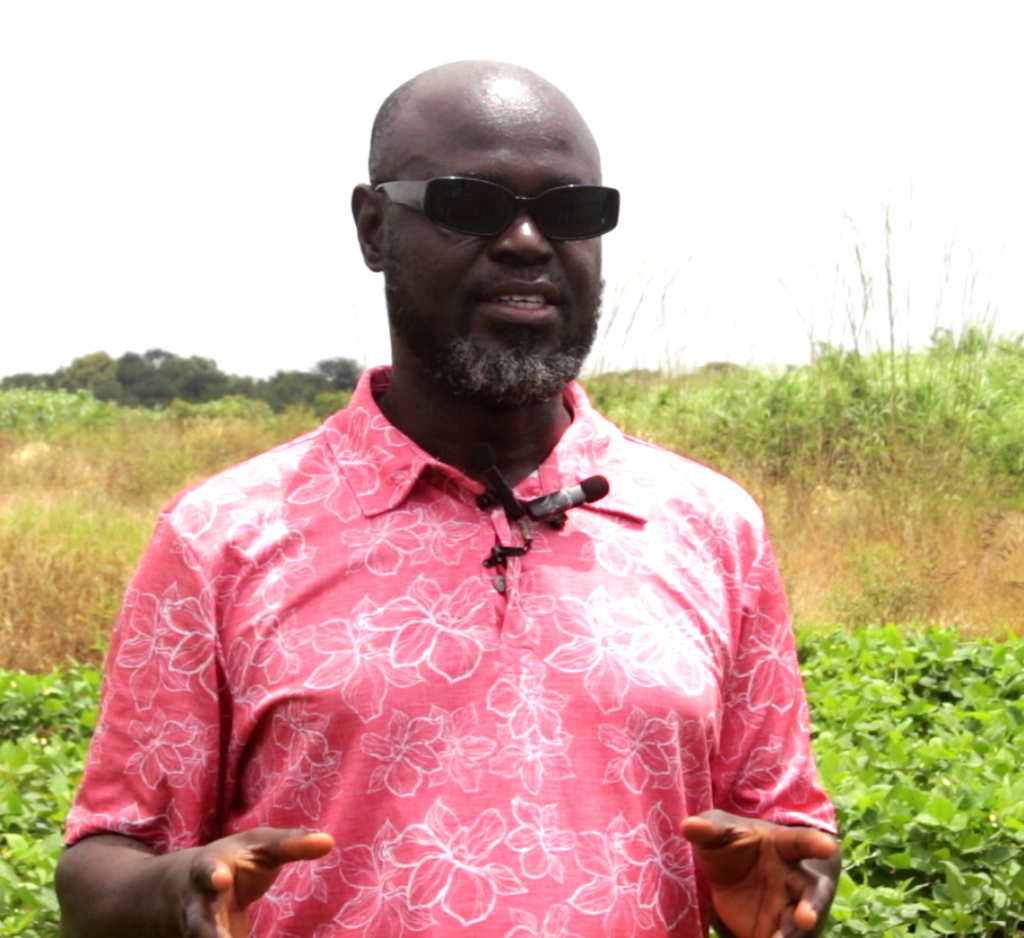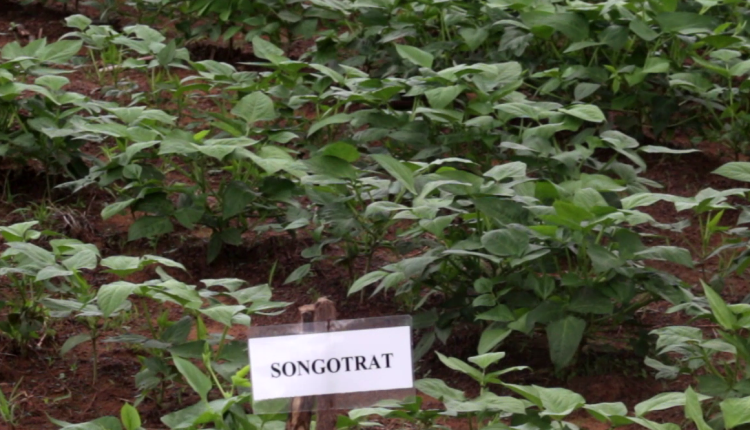The National Biosafety Authority (NBA), a body responsible for regulating biotechnology and its processes in Ghana has assured farmers that the Genetic Modification Cowpea PBR cowpea developed by Center for Scientific and Industrial Research of Savannah Agriculture Research Institute (CSRI-SARI) is safe.
The authority mandate also ensures safe handling; transport and storage of products from biotechnology. According to the authority, after several years of its technical team scrutiny on the scientist’s work, it is convinced that the BT cowpea was safe.
Speaking to journalists at CSRI-SARI demonstration farms in Nyankpala, Principal Biosafety Officer at National Biosafety Authority, Kwesi Anderson stated that the only variety of GMO seeds approved by NBA in Ghana is PBR BT cowpea.

Mr Kwesi Anderson, Principal Biosafety Officer-NBA
He clarified that the authority only granted permits to grains-food feed processing. ’’off course we are human beings, we are Ghanaians, what is meant for food some body can decide to plant it’’, Mr Anderson explained.
He encouraged Ghanaians, especially farmers to report any seeds in the market they suspect to be GMO to NBA for the necessary actions to be taken. ’’You hear news that the NBA has given approval for 14 varieties of GMO seeds, it is not true’’, he emphasized.
The NBA Mr Anderson said is to make sure the Ghanaian consumers are protected and also prevent people from bringing in unapproved GMO seeds to farmers.
A technical advisory committee numbering 11-13 experts from different fields normally carry out regular monitoring visits to ensure the set of rules are adhered to strictly to.
The laboratory and confined field sites and if they are satisfied, they forward Aside this, NBA monitory and compliance team farms. This, he added, was to ensure the crop is safe for both human, animals’ consumption and for the environment.
Project Officer at OFAB Ghana, Mr Enoch Illori said the initiative was to address the knowledge gap between agricultural technology and the public, adding farmers understanding of scientist work has improved during the trial period.


